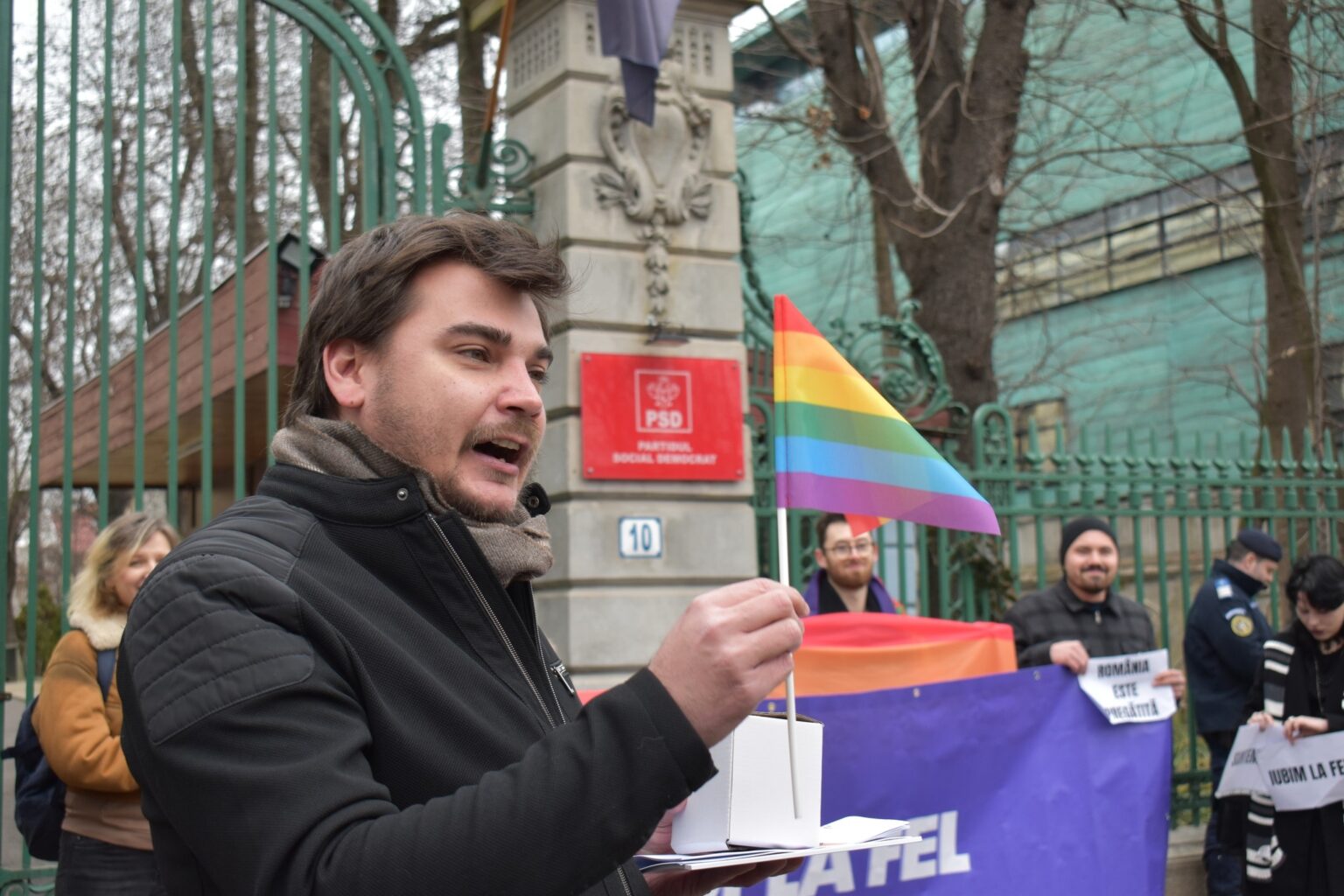Meet our Annual Conference hosts: MozaiQ – The courage to grow the movement in Romania

As the ILGA-Europe annual conference approaches, we turn our focus to one of the local co-hosts, MozaiQ, an organisation that has played a crucial role in shaping the LGBTI movement in Romania. Vlad Viski from MozaiQ shares what hosting the Conference means in the context of LGBTI rights in Romania.
Hi Vlad, tell us, what does hosting this conference mean for MozaiQ?
For us, hosting the ILGA-Europe Annual Conference is a testament to the growth of Romania’s LGBTI movement over the last decade. When we started in 2015, there were only one or two LGBTI organisations in the country. Today, there are more than 20 groups, not just in Bucharest but across six other cities. This transformation has been at the heart of MozaiQ‘s mission—building a movement from the ground up, creating spaces for underrepresented groups such as Roma LGBTI youth, transgender people, and the elderly.
The Conference is a reward for our efforts, and it shows that Romania is ready to connect with activists from across Europe. This Conference isn’t just about us; it’s about recognising that our work is worthy and that our movement is mature.
What does this mean in a wider political context for the LGBTI movement in Romania?
Romania’s political landscape has been anything but easy for LGBTI people. In ILGA-Europe’s Rainbow Map, Romania ranks 26th out of 27 EU countries on LGBTI rights, only ahead of Poland. Same-sex couples are not legally recognised, and gender recognition for trans people is an ongoing battle. Recent legal victories, such as defeating the 2018 referendum aimed at banning gay marriage and the 2020 bill that sought to outlaw gender identity education, and the 2024 landmark ruling from the EU Court of Justice affirming the mutual recognition of legal gender identities across Member States, show the importance of continued resistance.
We’ve managed to prevent Romania from following the path of Hungary or Poland, where democracy is being eroded. Our success in stopping these anti-LGBTI measures shows that civil society is strong, but the fight is far from over.
What is in the near future for the LGBTI movement in Romania?
With the upcoming Presidential and Parliamentary elections happening before the end of the year, the ILGA-Europe conference will play a role in keeping Romania’s LGBTI rights on the political agenda. Romania is being watched, and our movement is gaining power not just here, but across Europe. Romania has to stay on its European path. It has to provide a strong policy on legal gender recognition based on self-determination and create an environment in which LGBTI people are protected. It is essential that Romania continues to recognise the rights of LGBTI people as part of its commitment to the European path.
Photo by Maximilian Androne